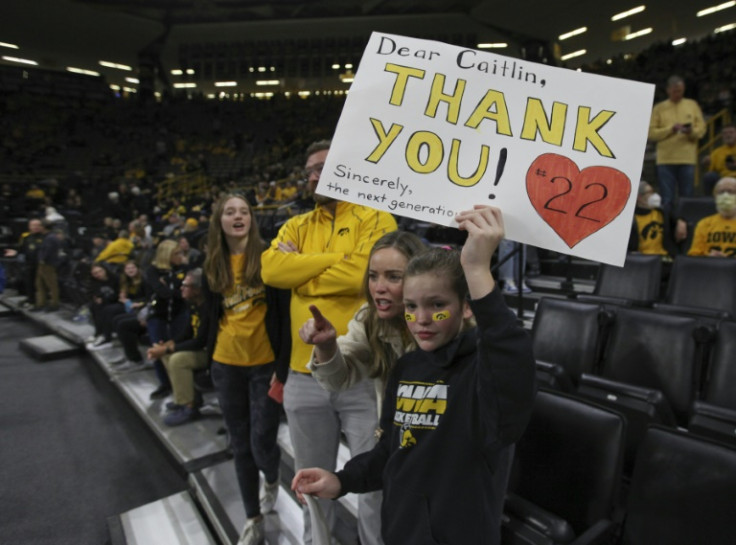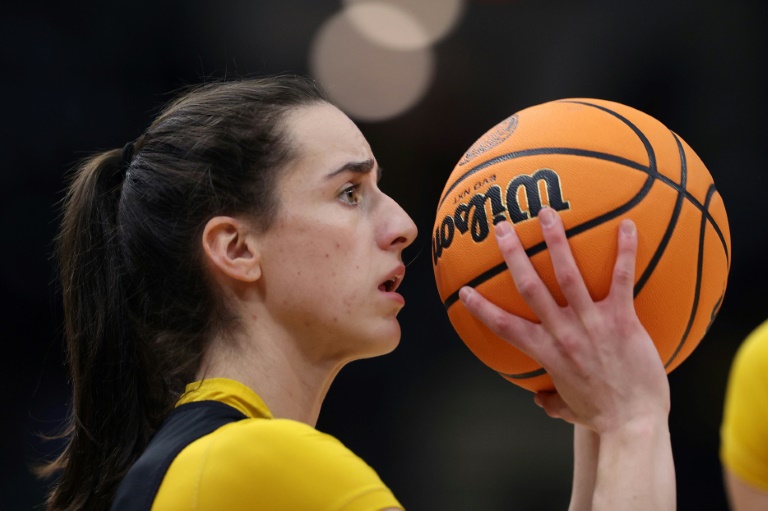After a dazzling college career that smashed records on and off the basketball court, Caitlin Clark’s legacy as a trailblazing icon for women’s sport is already secure.
Now, as the 22-year-old prepares to be chosen with the No.1 pick in next week’s WNBA draft, experts are predicting Clark may well have the same kind of transformative effect on women’s professional basketball.
Cathy Engelbert, the WNBA’s commissioner, said Monday that Clark and the next generation of women’s basketball players will be economic engines that will ensure the league’s financial footing for the next 30 years.
Engelbert told CNBC that the WNBA expects to see its existing media deals double in value, from around $50 million a year to $100 million, when they are next negotiated in 2025.
“We hope to at least double our rights fees,” Engelbert said. “Women’s sports rights fees have been undervalued for too long. So we have this enormous opportunity at a time when the media landscape is changing so much.”
Engelbert said the arrival in the WNBA of Clark and other college stars such as Louisiana State University’s Angel Reese and South Carolina’s Kamilla Cardoso could have the same kind of impact as the 1980s rivalry between Magic Johnson and Larry Bird, which helped create the modern NBA.
“I think we’re setting the league up with this next media rights deal not just for the next three to five years but for the next 30,” Engelbert said.
“If you look at the history of men’s sports, do we have our ‘Bird-Magic’ moment like the NBA?”
The WNBA class of 2024 will bring with them built-in audiences from college basketball and, significantly, substantial social media followings.
Clark’s 258,000 followers on X, formerly Twitter, is more than 100,000 followers more than Breanna Stewart, the current WNBA Most Valuable Player.
Reese — affectionately nicknamed ‘Bayou Barbie’ — will bring an X following of 415,000 to the WNBA.
Clark’s impact on the business of college basketball in recent seasons is well documented. This season, Clark and the University of Iowa Hawkeyes set or broke attendance records in all but two of their games, according to the NCAA.
Sunday’s collegiate championship between Clark’s Iowa and South Carolina drew an average audience of 18.7 million viewers, according to US sports network ESPN.
That made it the most watched women’s basketball game in history; and the most watched basketball game of any kind — men’s or women’s, college or professional — since 2019.
The University of Iowa women’s basketball program generated $3.8 million in 2022-2023. That was up from $1.7 million a year earlier.
Already there are signs that the “Caitlin Clark Effect” is starting to wash over the WNBA.
The Indiana Fever, the club who are guaranteed to take Clark with the top draft pick on April 15, sold out seats for games against Connecticut and Los Angeles within hours of putting them on sale.
Courtside seats for the May 28 game with Los Angeles in Indianapolis were being offered for $660 on one resale website.
And it’s not just Indiana who expect to cash in on Clark’s box office appeal.
The Las Vegas Aces have already announced plans to move their July 2 home game against Indiana from their 12,000-seat Michelob Ultra Arena in Las Vegas to the bigger, 20,000-capacity T-Mobile Arena.
Mary Jo Kane, a professor at the University of Minnesota and founding director of its Tucker Center for Research on Girls and Women in Sport, says Clark has been an “unprecedented tsunami of impact and influence.”
“No one has been able to capture the kind of magic or lightning in a bottle like Caitlin Clark has done,” Kane told National Public Radio in a recent interview.
Even though her college career ended in disappointment on Sunday, with defeat to South Carolina, Clark remained the centre of attention.
South Carolina’s coach Dawn Staley thanked Clark for “lifting up our sport”.
“She carried a heavy load for our sport, and it is not going to stop here on a collegiate tour. When she’s the No.1 pick in the WNBA Draft, she’s going to lift up that league as well.”
Clark meanwhile derives satisfaction from a collegiate career that redefined the popular appeal of women’s sport.
“When you’re given the opportunity, women’s sport thrives and that’s been the coolest part for me on this journey,” said Clark, whose achievements this season included breaking Pete Maravich’s 54-year-old all-time college basketball scoring record.
“We started the season playing in front of 55,000 people, now we’re ending it in front of 15 million people on TV. It just continues to get better and better and that’s never going to stop.”
Clark believes investment will be the key to the success of women’s sport in the long term.
“No matter what sport it is, believe in them the same, invest in them the same, and things are going to thrive,” said Clark.
“You see it with other sports. Continue to invest time, money and resources for those people and give them the opportunities. That’s what’s going to drive women’s sports in future.”
AFP

AFP







![Former Cowboy Jason Witten ‘can be a top [NFL] coach,’ says Jerry Jones Former Cowboy Jason Witten ‘can be a top [NFL] coach,’ says Jerry Jones](https://a57.foxsports.com/statics.foxsports.com/www.foxsports.com/content/uploads/2024/11/1408/814/witten1.jpg?ve=1&tl=1)